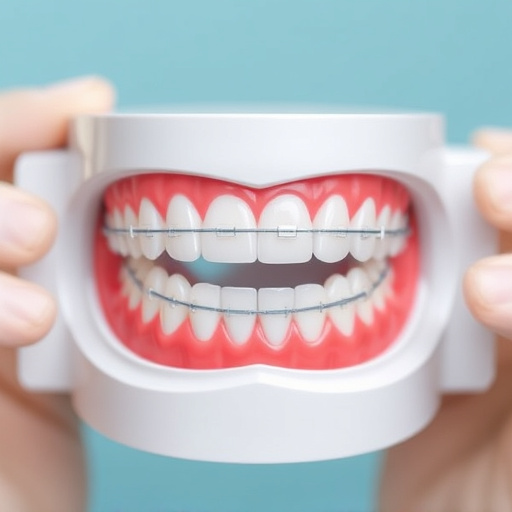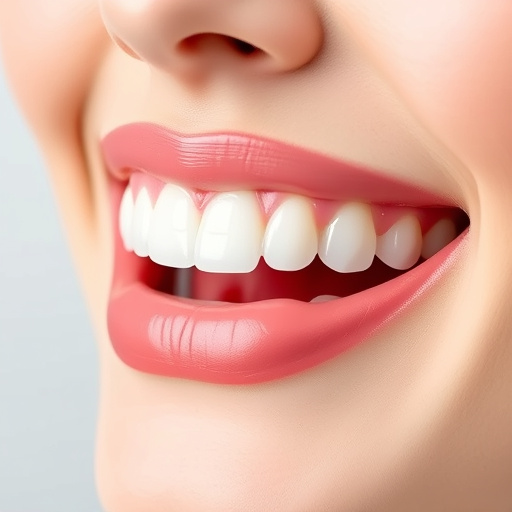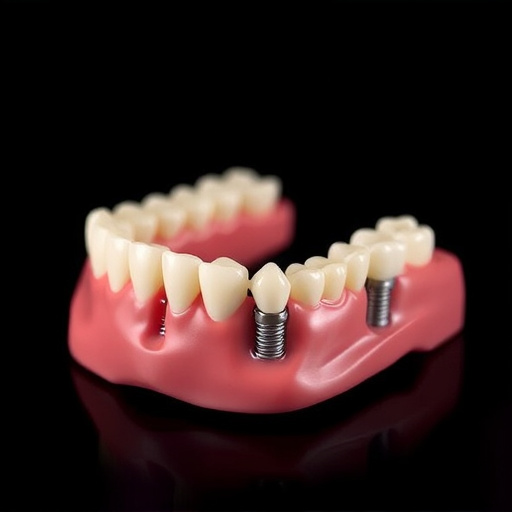Denture relines treatment is a key preventive dentistry measure that ensures optimal comfort and security for denture wearers by adjusting the fit of dentures over time, countering factors like gum recession and bone loss. The duration varies based on gum health, bone structure, and reline material, with regular dental check-ups crucial for monitoring changes. Patients can choose between temporary (quick adjustments, cost savings) and long-term (secure fit for years, more expensive upfront) solutions, both requiring regular cleanings and maintenance.
Considering denture relines treatment? You’re not alone. Many people explore this option for a secure, comfortable fit. This article delves into the world of denture relines, breaking down the basics, exploring factors that dictate their duration, and comparing long-term vs. temporary solutions. Whether you’re seeking relief from ill-fitting dentures or exploring maintenance options, understanding your choices is crucial. Let’s navigate the options together.
- Understanding Denture Relines: The Basics
- Factors Determining the Duration of Relines
- Long-Term vs. Temporary Solutions: Pros and Cons
Understanding Denture Relines: The Basics

Denture relines treatment is a crucial aspect of maintaining optimal oral health for those using dentures. This procedure involves adjusting and refining the fit of dentures to ensure they remain comfortable and secure in the mouth over time. The process is particularly important as dentures can shift due to natural factors like gum recession or bone loss, leading to discomfort and potential health issues.
Understanding denture relines treatment is essential for those considering it as a preventive dentistry measure. Regular dental cleanings and general dentistry practices play a significant role in determining the frequency of relines. By keeping the gums and mouth healthy through routine care, patients can extend the life of their dentures and reduce the need for frequent relines. This simple yet effective approach is key to enhancing overall oral health and well-being.
Factors Determining the Duration of Relines

The duration of denture relines treatment is determined by various factors that contribute to the overall health and fit of your dentures. One key consideration is the quality and condition of your gums and bone structure. Over time, gum tissue can recede or shrink, leading to a loose fit for dentures, which necessitates more frequent relines to ensure they remain secure. Regular dental check-ups, including routine oral exams and dental cleanings, play a crucial role in monitoring these changes and predicting the need for adjustments.
Another significant factor is the type of denture reline material used. Modern treatments offer both temporary and long-term solutions. Temporary relines might be suitable for minor fit issues or as a transition to a more permanent solution. In contrast, long-term relines, often involving advanced materials like precise resin or custom-made clear aligners, provide a more stable and comfortable fit that can last several years with proper care, including regular dental check-ups, cleanings, and the adherence to post-treatment instructions.
Long-Term vs. Temporary Solutions: Pros and Cons

When considering denture relines treatment, patients often face a choice between temporary and long-term solutions. Temporary relines are ideal for short-term relief, providing quick adjustments to fit loose dentures. They are cost-effective and suitable for those awaiting more permanent options or experiencing minor slippage. However, they may not offer the same level of comfort and security as longer-lasting alternatives.
On the other hand, long-term denture relines involve more extensive work and materials, ensuring a secure fit for years to come. While initially more expensive, this option provides durability, enhanced comfort, and peace of mind. Regular dental cleanings and check-ups become crucial for maintaining these long-term solutions, just as they are essential for overall oral health, including the placement of dental fillings when necessary.
When considering denture relines treatment, understanding the options available is key. Whether opting for a temporary or long-term solution, each has its advantages and disadvantages. By weighing factors like comfort, cost, and longevity, patients can make an informed choice that aligns with their needs and budget. Ultimately, choosing the right denture relines treatment ensures a more secure fit, enhances chewing efficiency, and contributes to overall oral health and well-being.














